
This is what life is like in a tiny home near Toronto
A Toronto family who recently moved into a tiny home love the freedom that tiny living brings.
D'Arcy McNaughton of Acorn Tiny Homes started building his tiny home in the Junction back in the fall of 2020. The home was mostly finished in the spring and he, his wife Olivia Chubey, and their baby moved in on a family piece of land in the Toronto area. They finished the last few touches while living there.
"Now everything's complete and it's exactly the home that we've always dreamed of," McNaughton tells blogTO.
The home is just over 400 square feet, if you include the lofts — there are two for sleeping and a home office.
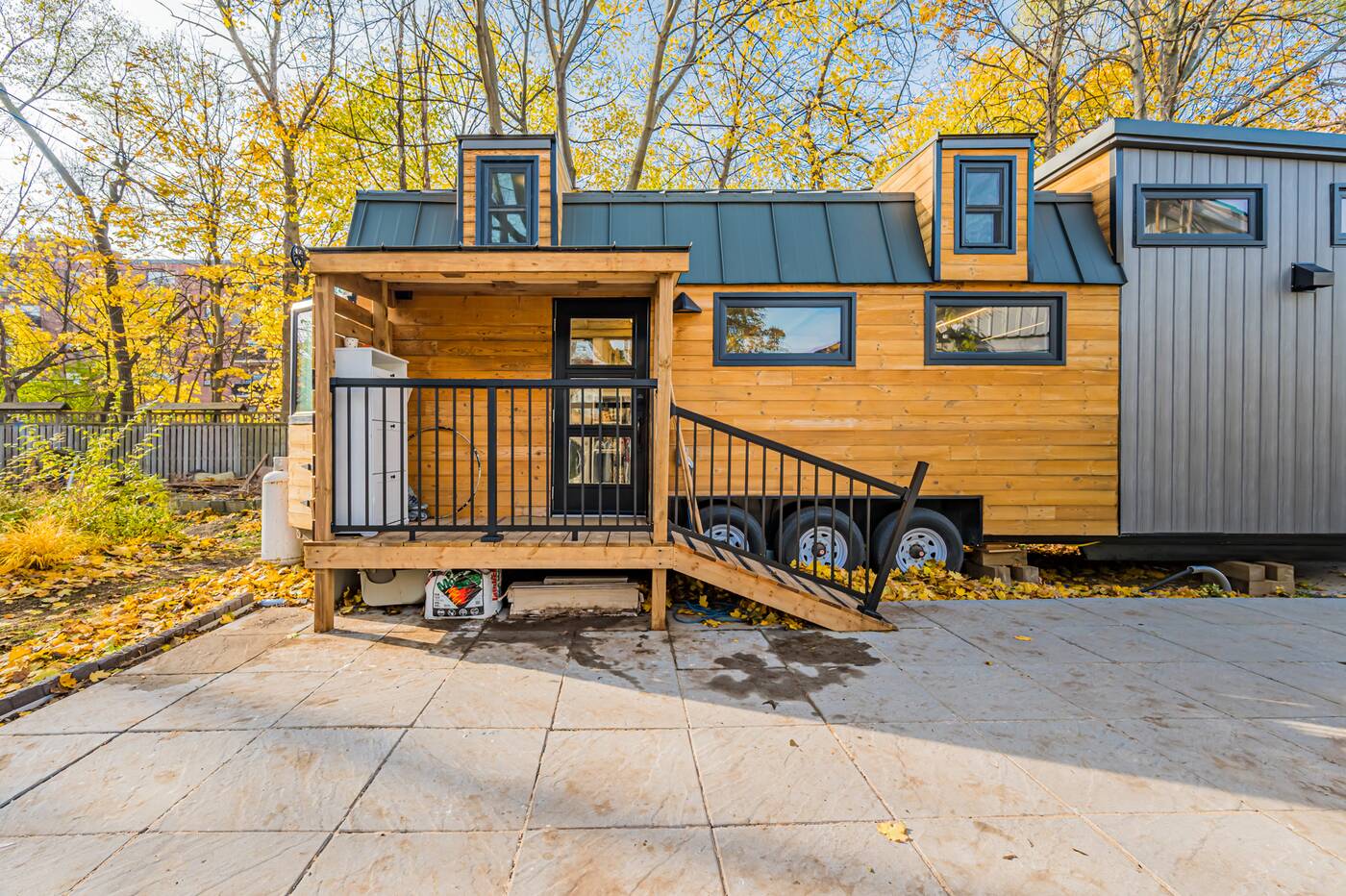
The tiny home is parked on a family property in the Toronto area.
"We don't feel cramped," McNaughton says, adding that sometimes his son's toys can clutter the floor space, but this would happen in any home. "There are enough different areas of the house that we're never really in each other's space."
The split level living creates distinct separate areas that allows for different activities to be going at the same time.
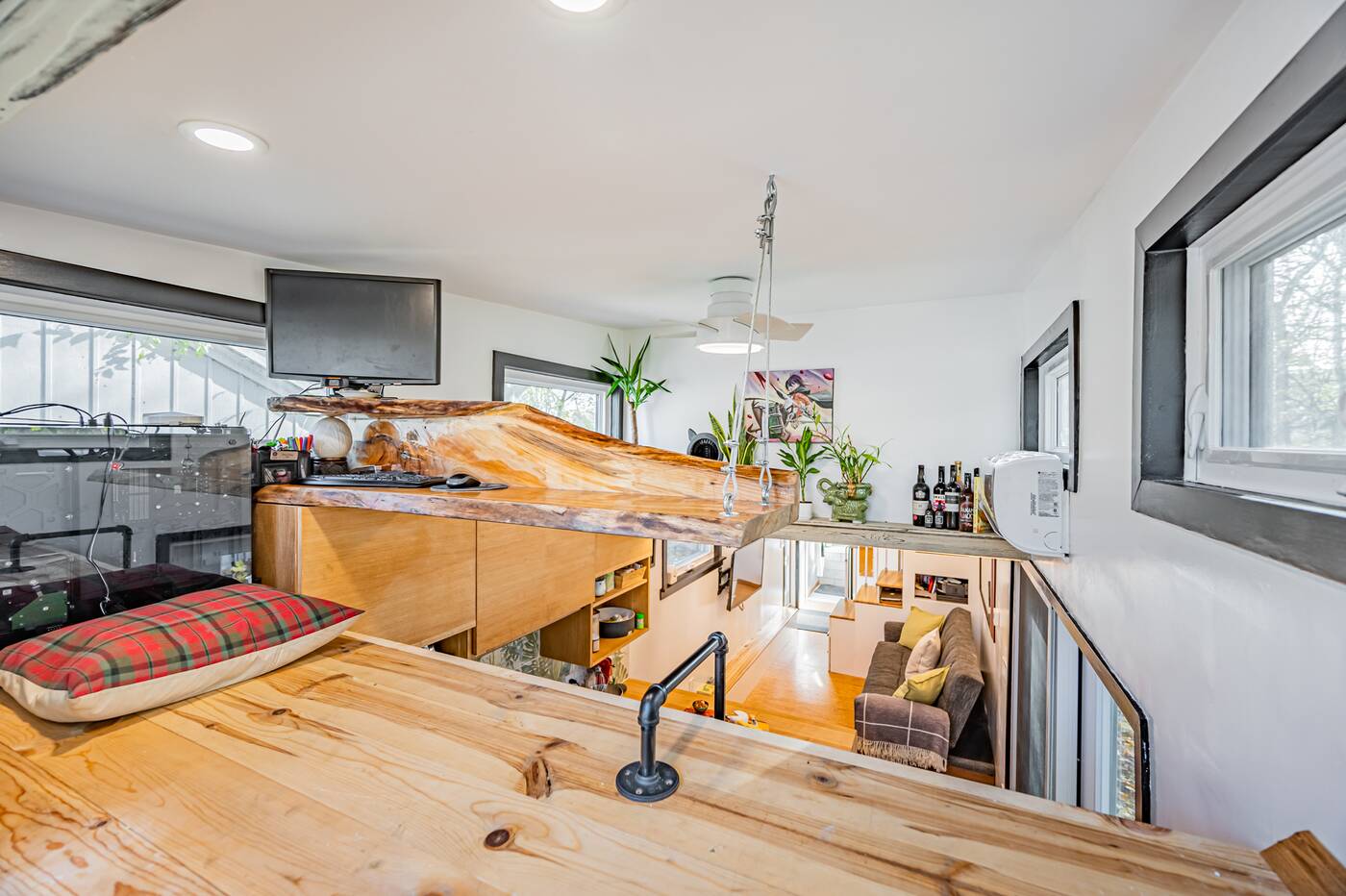
The house has a loft that functions as a home office.
"So it definitely feels as though you have separate spaces if you need to get away and have some private time to work on what you need," he says.
The tiny home includes the couple's dream feature — an atrium bathroom.
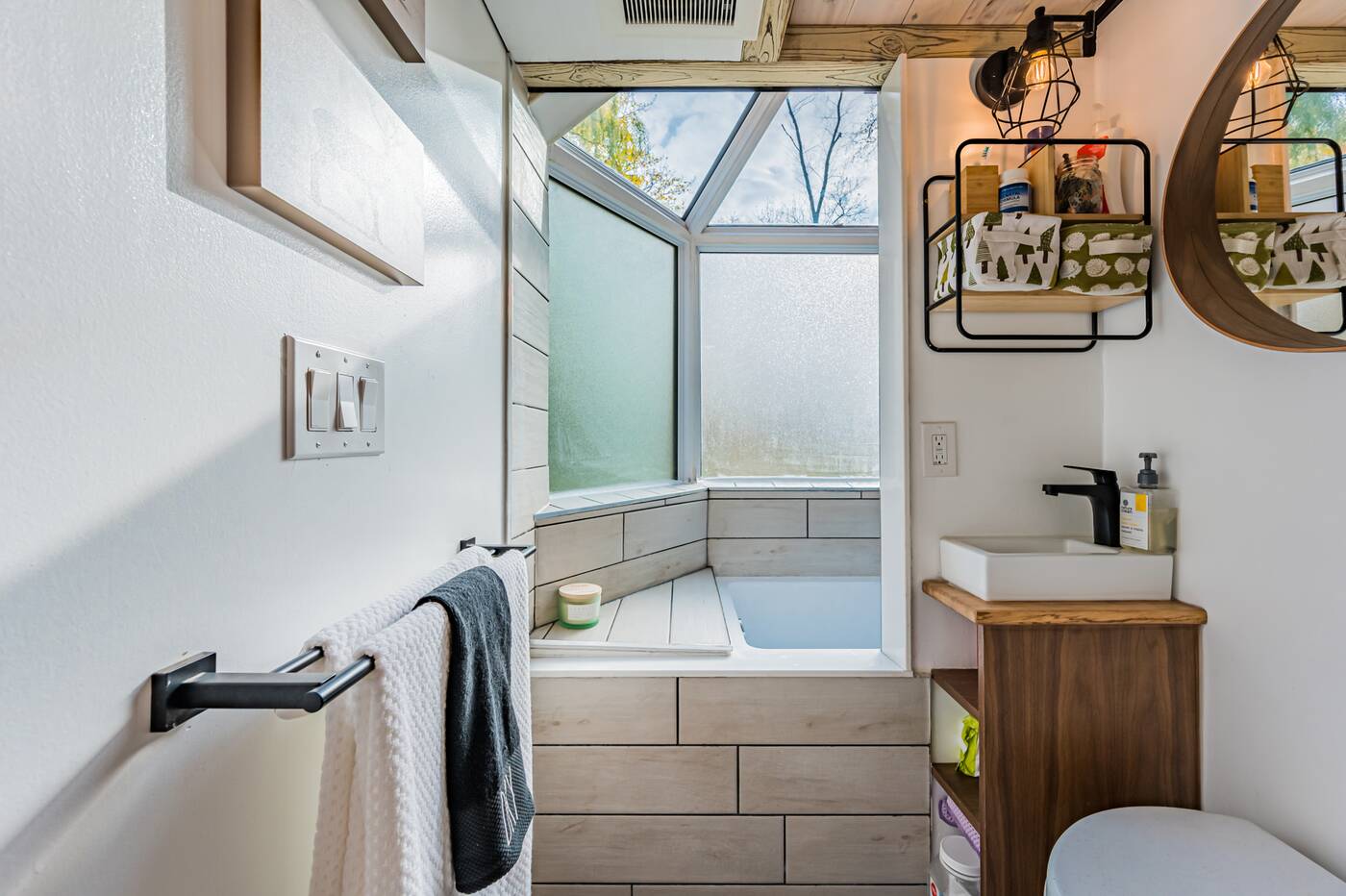
The atrium allows you to take baths while looking up at the stars.
"It's amazing for baths because you can just lie down and relax and stare up at the sky."
They also added a baby safety feature for the stairs, which are built to code but have two removable bottom steps to create a bigger passageway and ensure their son doesn't climb upstairs.
"It helps keep the space a little bit safer that way."
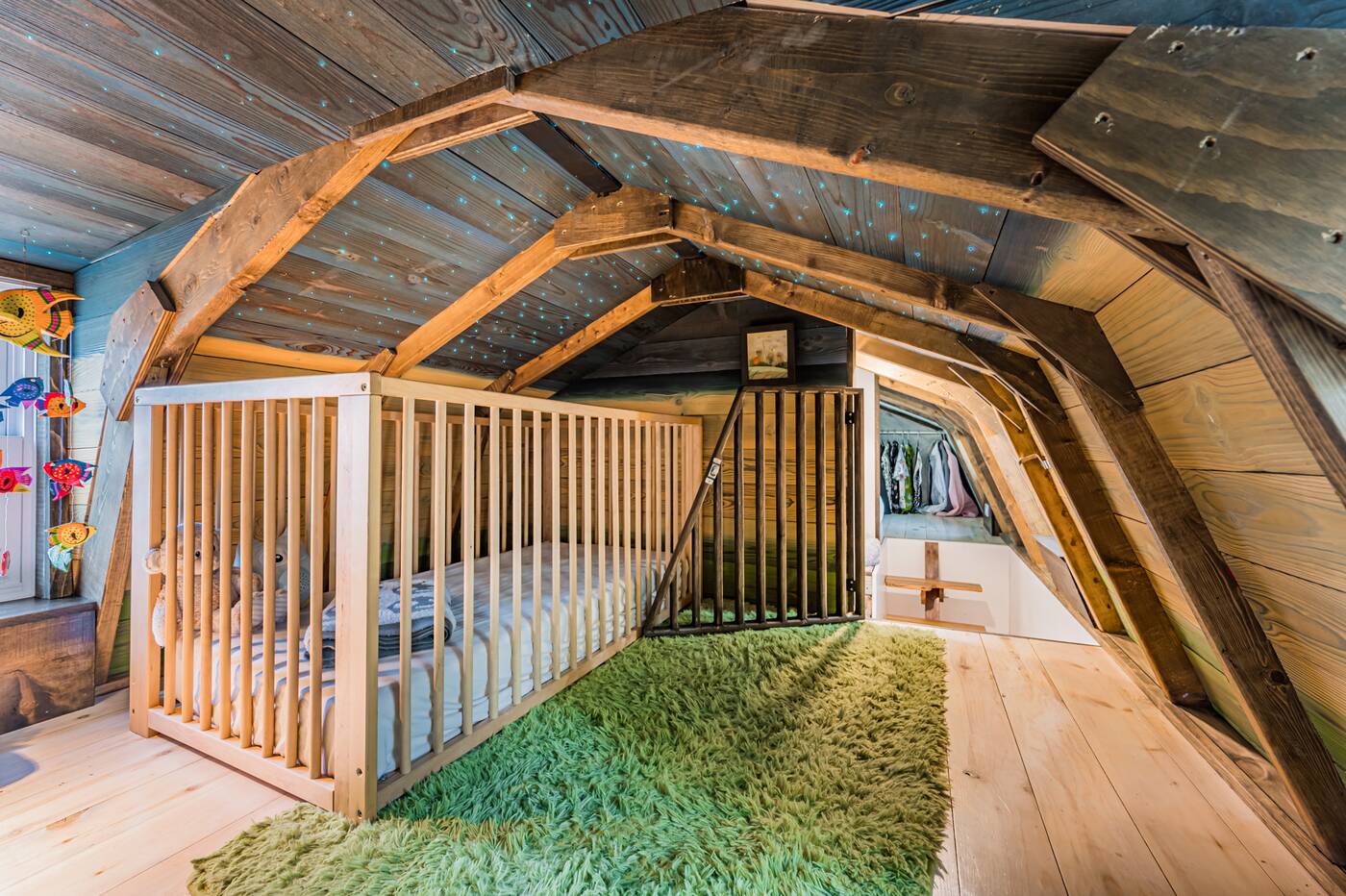
The largest loft is the baby's room.
The smaller space meant that the family had to get rid of a few things, but McNaughton says it was mostly furniture.
"The funny thing is, when you have big spaces like that, you buy stuff to fill up the room."
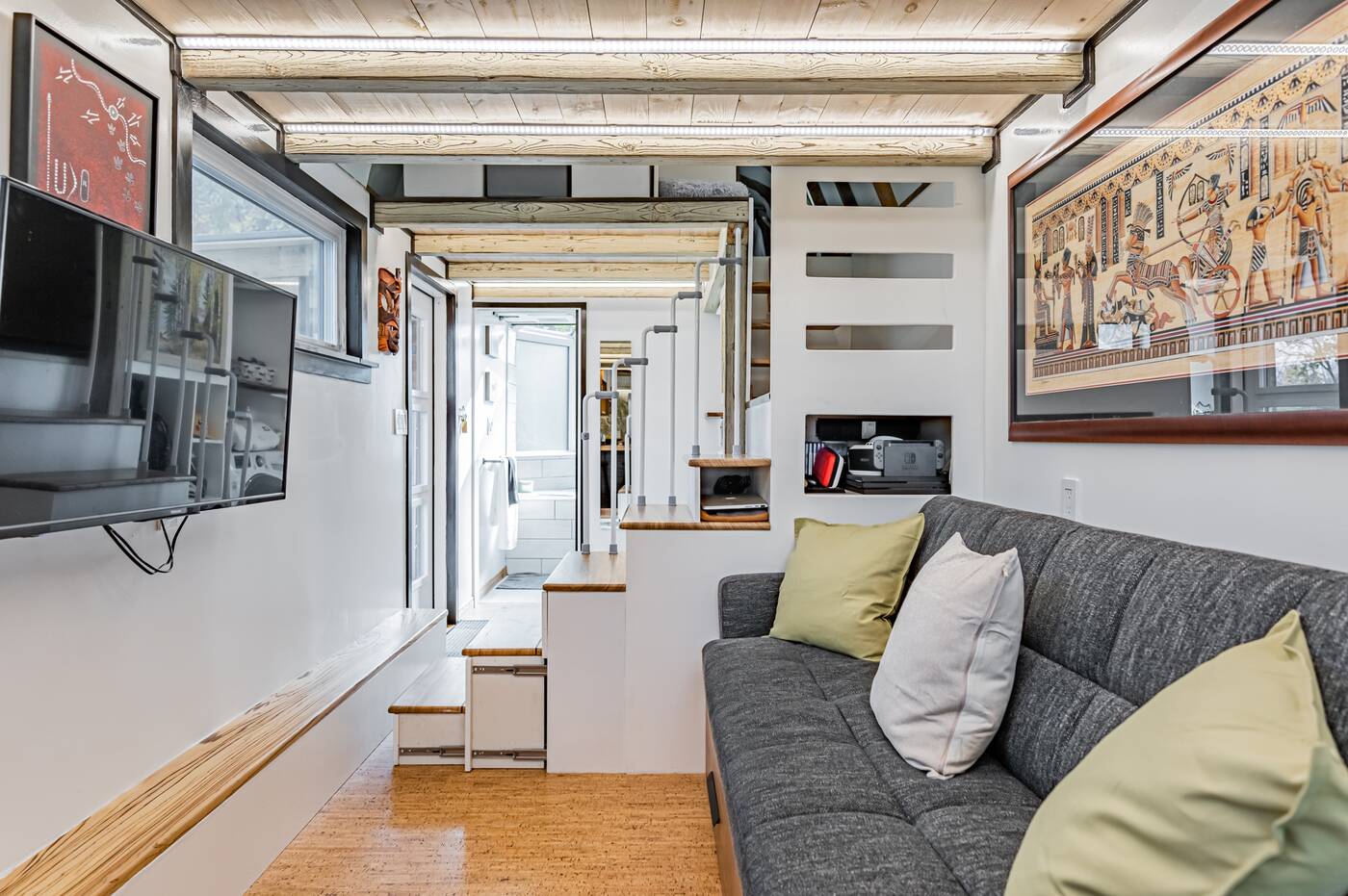
The living room has enough space for the couple to watch TV.
They had to get rid of some of their books and pare down the kitchen appliances. They replaced the oven with a microwave oven, air fryer and boiler combo.
"We're able to fit an entire roast chicken in there, as well as potatoes and vegetables at the same time."
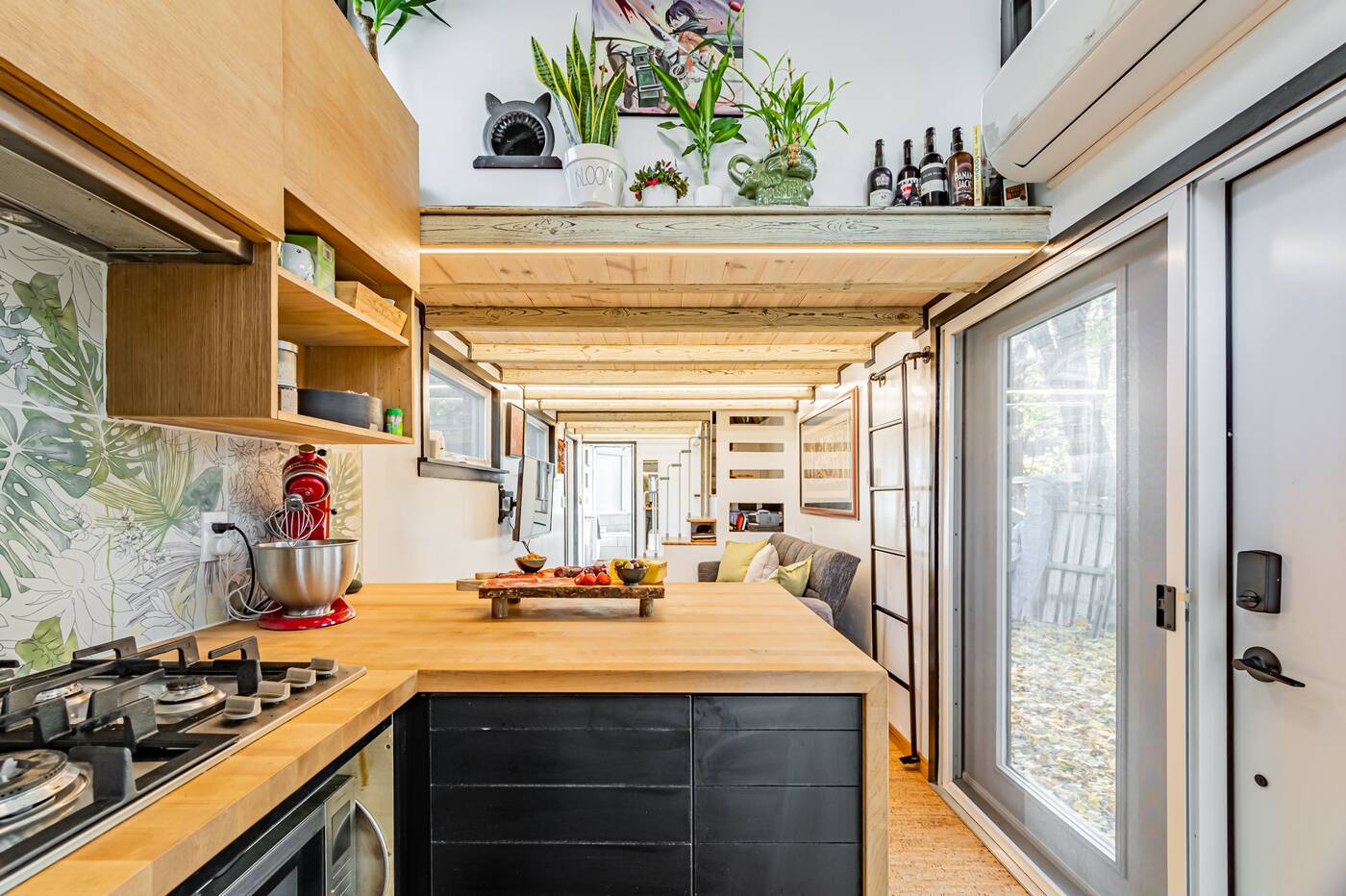
The kitchen appliances had to be pared down to fit the space.
The home is built as partially off-grid. It is connected to hydro but also uses propane for the stove, a hot water tank (which has to be refilled every three or four days) and a composting toilet. The couple chose this out of a concern for the environment.
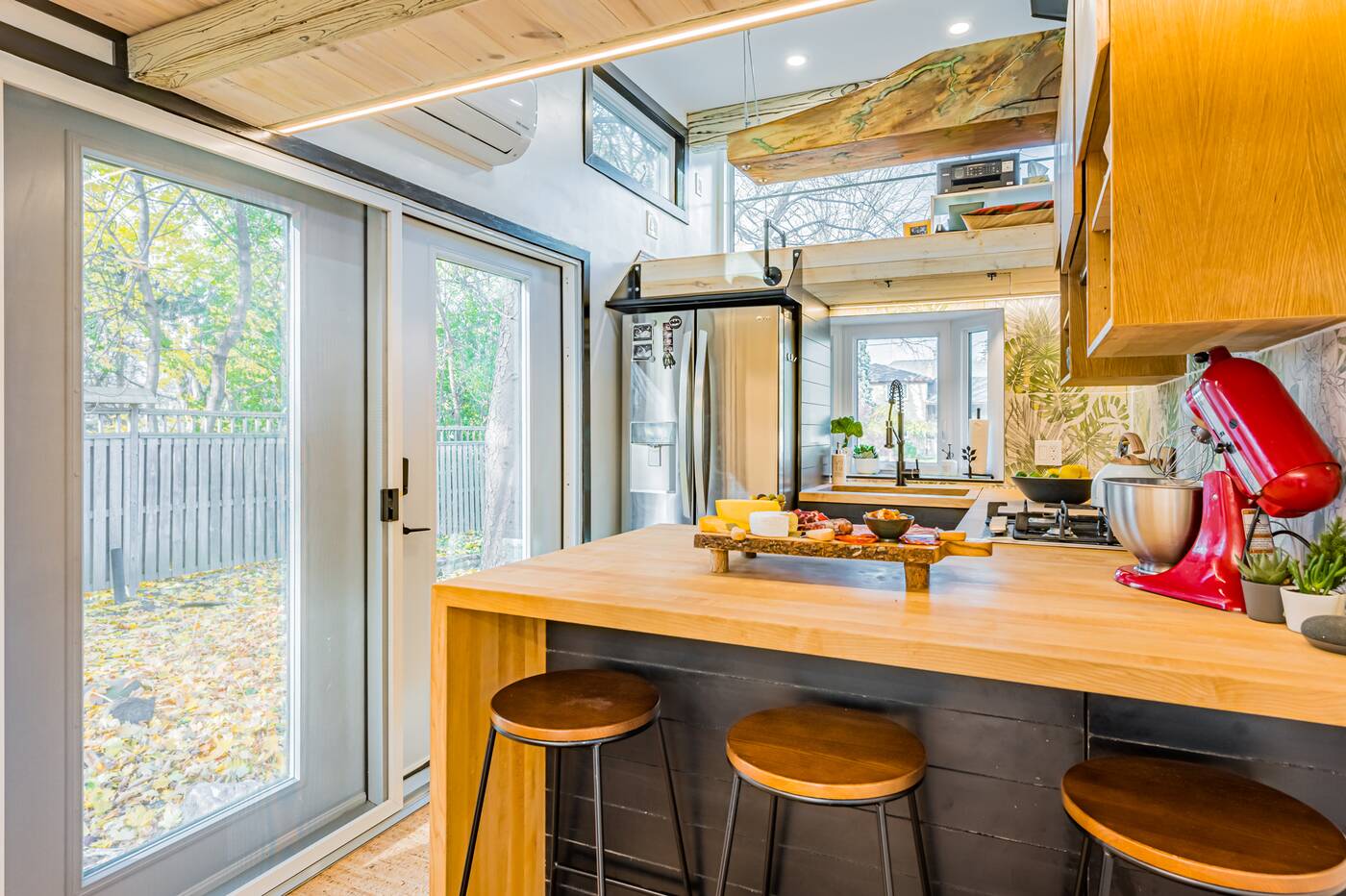
They love baking so they made space for their stand-up mixer.
"I know some people are not excited about the fact that you have to empty the tank or your soil has to be dumped once a month," McNaughton says. "But for us, the approach was that we wanted to be better stewards of the environment."
The average person flushes more than 100,000 litres of clean water down the toilet every year.
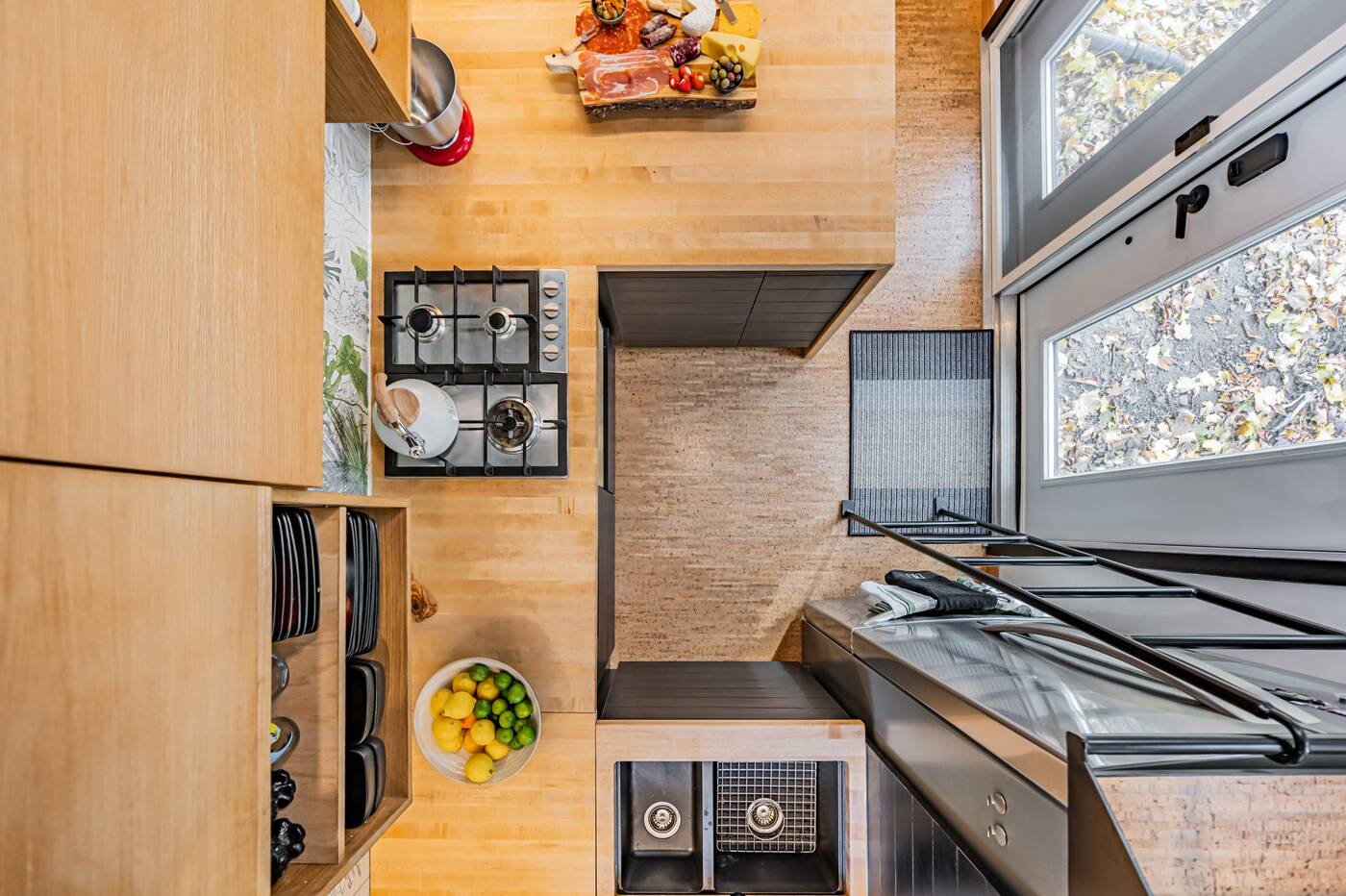
Space is tight in a tiny home.
But two of the biggest advantages for building the tiny home were avoiding the debt of a huge mortgage, and being close to family says Chubey.
"We kind of designed our home as a solution to our problems," she says.
The couple can get help with their baby while working and also help out Chubey's parents. She feels that many people might be missing that community support often absent in modern life.
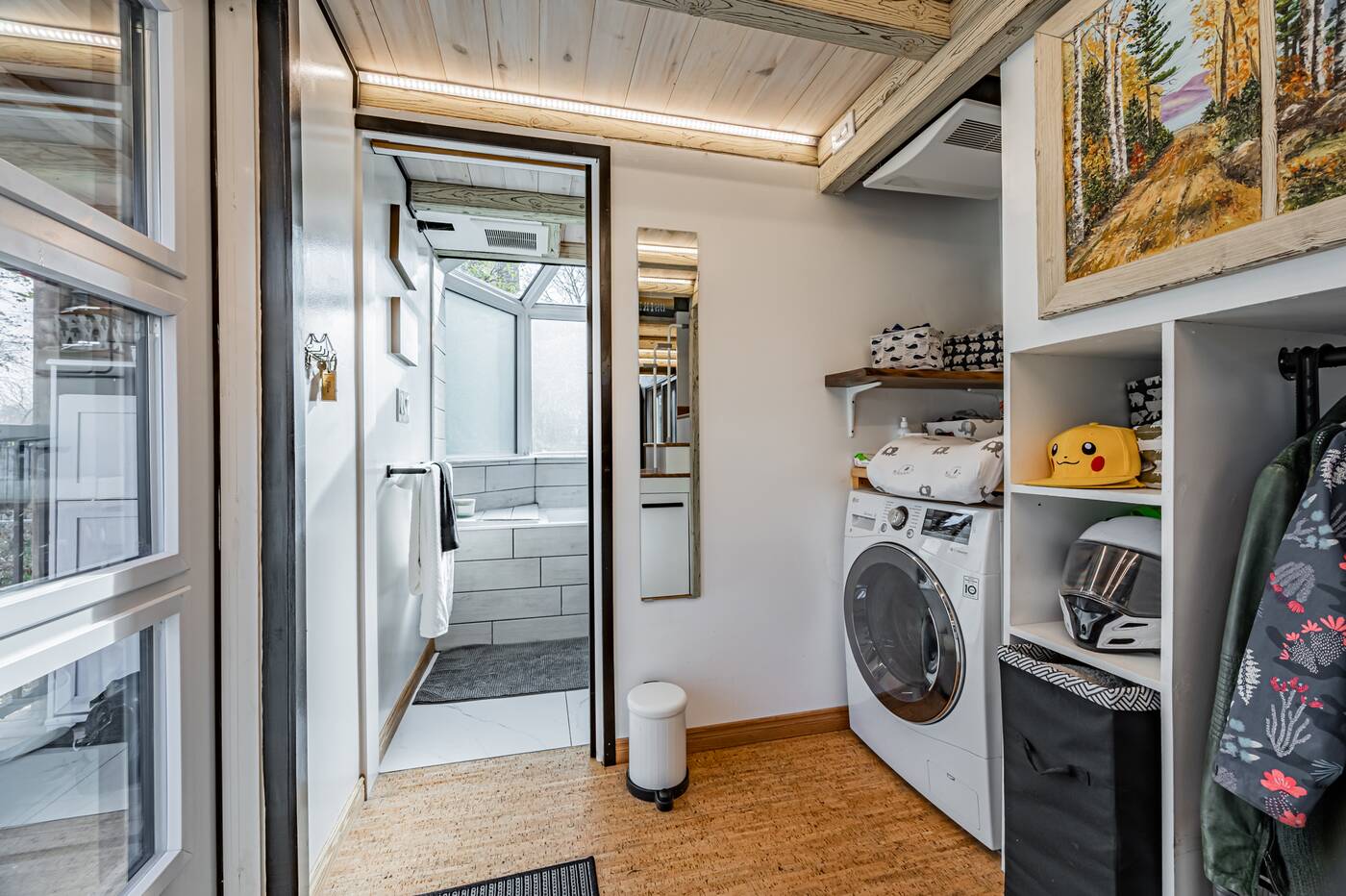
They still have the essentials.
"So we have a mini village, which has been really nice, but I think that's what a lot of I guess our society is having walked away from but it's so beneficial for everyone to find their version of it," she says.
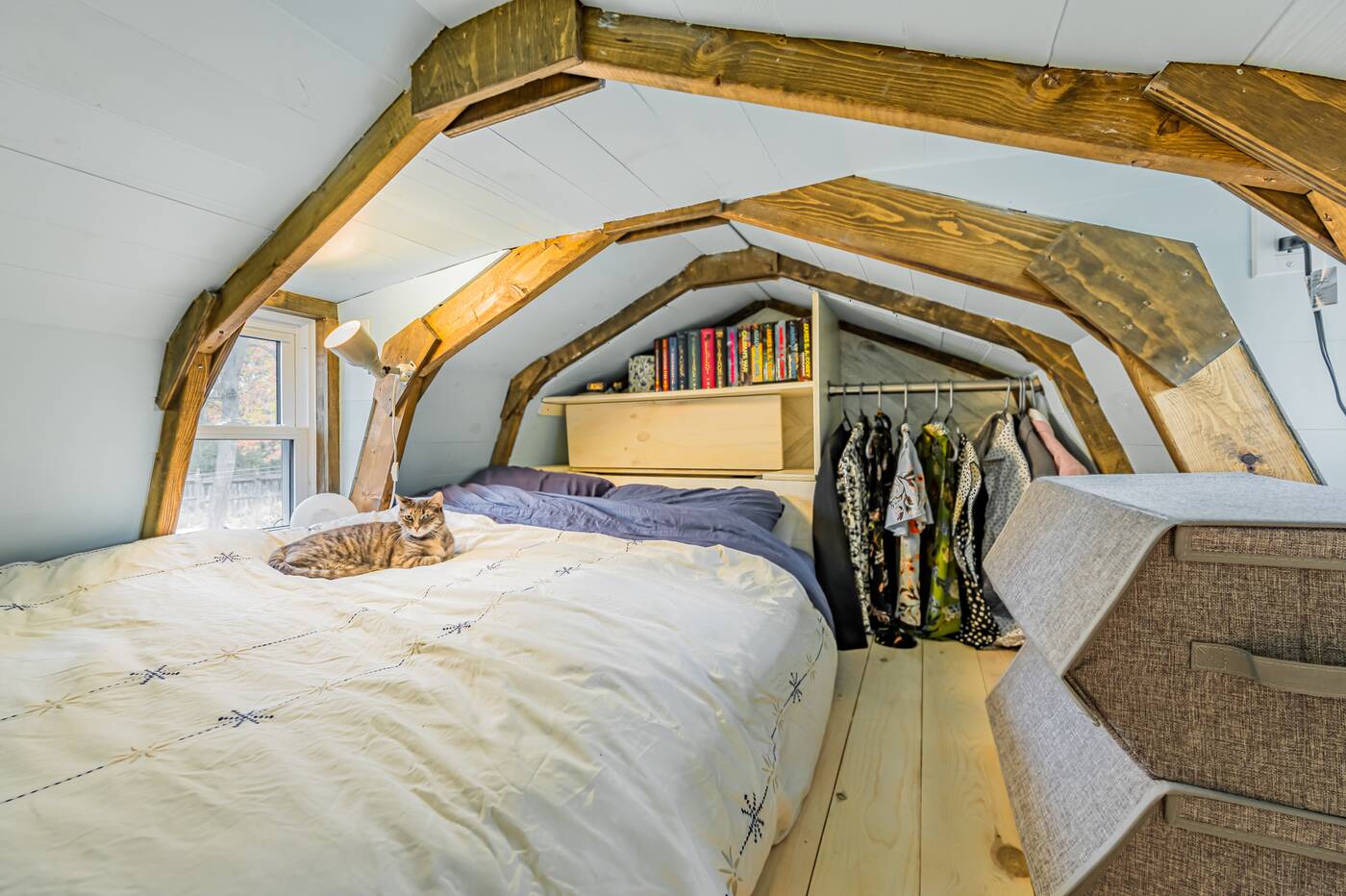
There is even room for the cat.
Finding a place to put a tiny home, particularly one on wheels, has been a challenge in the past, but more Ontario municipalities are opening up to the idea of small living. There are a few communities in Kingston, Oshawa and Goderich.
Steven Liu
Latest Videos
Latest Videos
Join the conversation Load comments







